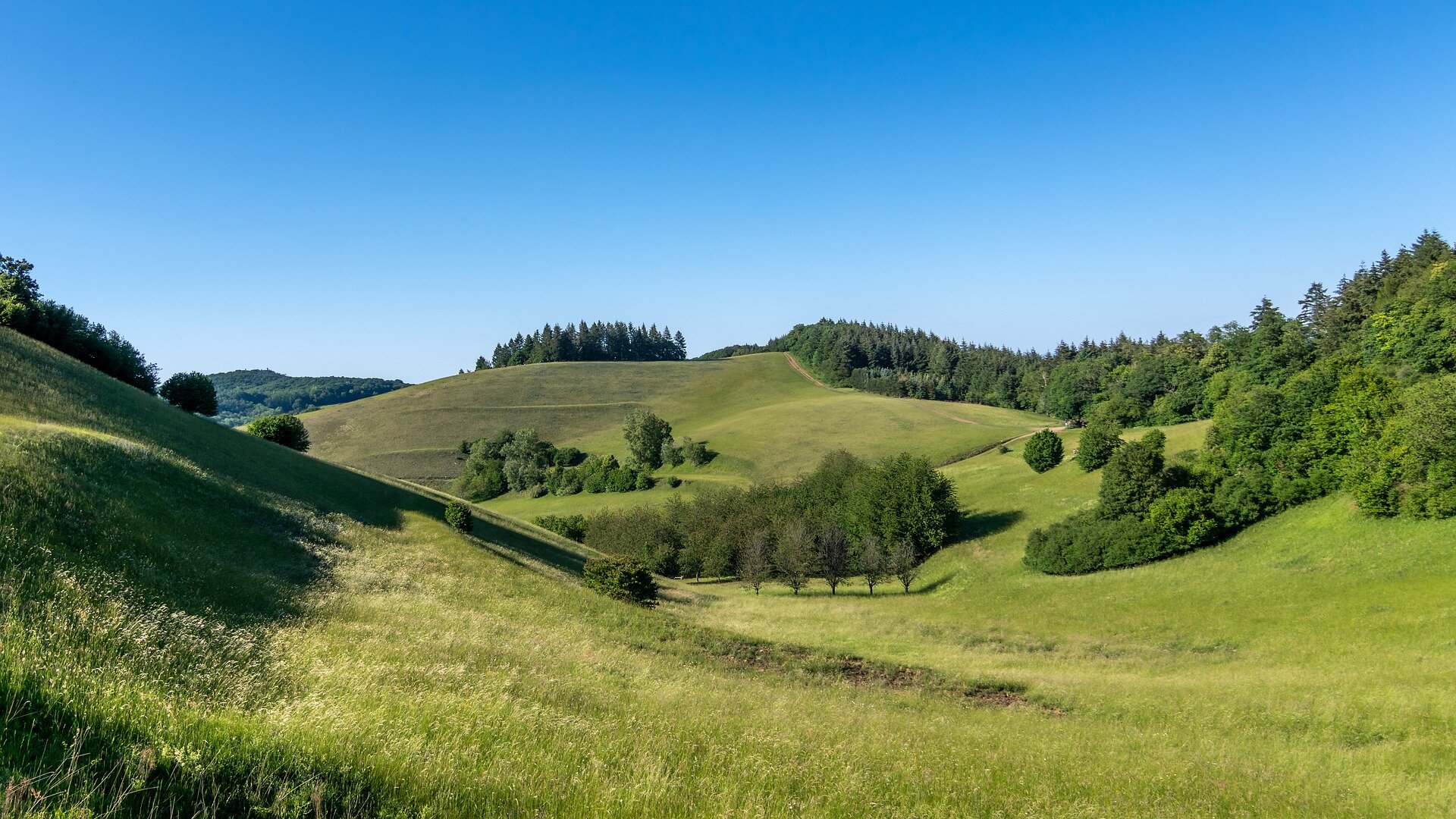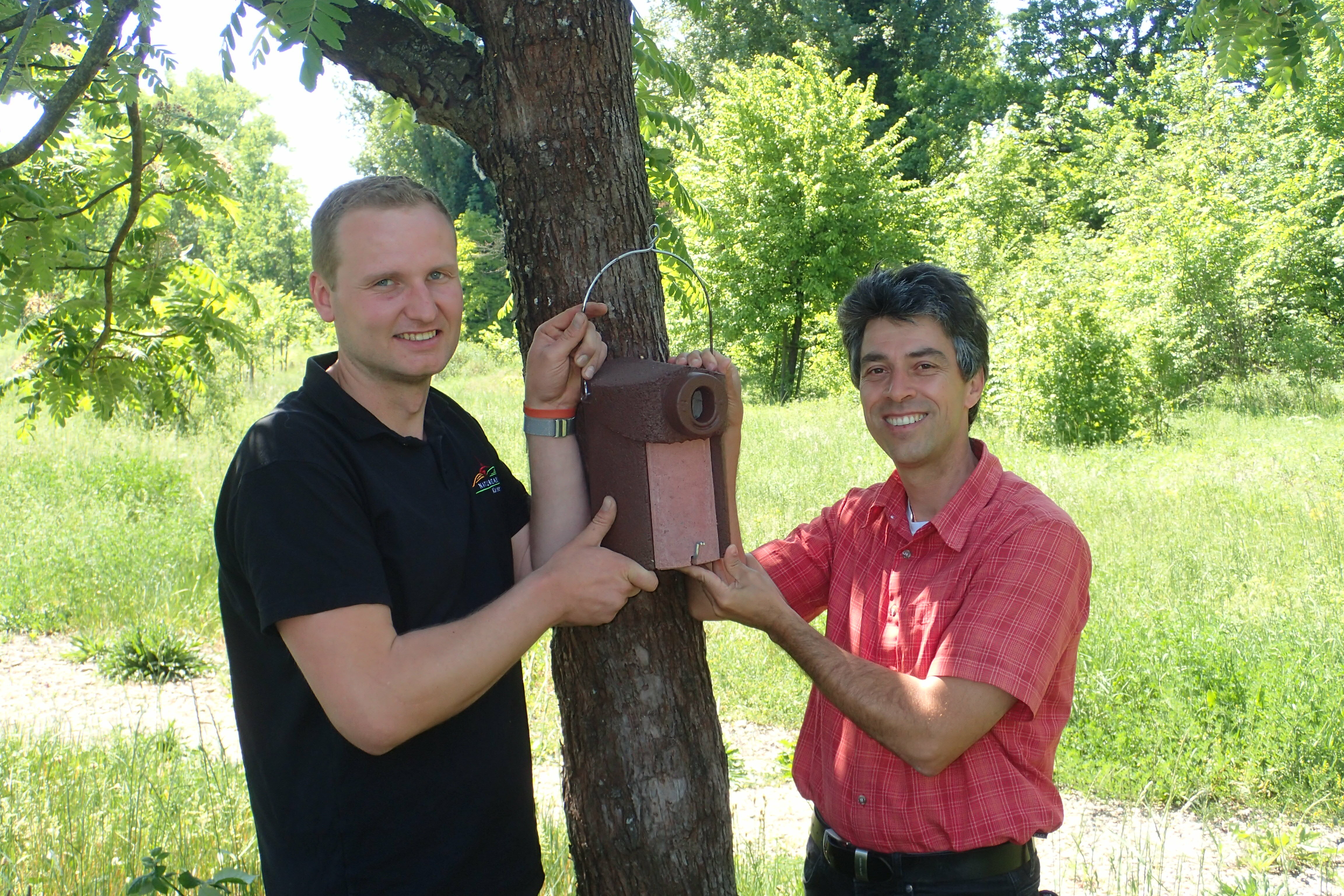
Nature Conservation Fund
Regional Nature Conservation Fund - a driving force for nature conservation action.
The Kaiserstuhl Nature Garden Region has set up a nature conservation fund as part of PLENUM regional development programme to open up another way in which partners in the regional "Kaiserlich genießen" brand programme can make a contribution to nature conservation. This is mainly used by processing companies, gastronomic and tourist service providers without their own cultivated areas, while farmers and winegrowers can achieve a direct nature conservation benefit by maintaining and cultivating extensive areas amounting to 10% of their farmland.
With the first funds, a dry stone wall made of 16 tonnes of regional volcanic stones was built in March 2013. In a broad-based community action under the guidance of an expert and with the active cooperation of many volunteers, a stone-rich habitat was created for lizards, creeping snakes and other animals.
In order to put the money that has been paid in to good use, the Naturgarten Kaiserstuhl GmbH collected suggestions by means of a public appeal and targeted enquiries with nature conservation experts. After expert coordination in a committee consisting of representatives of the regional society, the landscape conservation associations, the nature conservation authorities and the nature conservation associations, nesting houses for hoopoes have now been built, oaks planted on large slopes of vine terraces, nesting boxes for migrating scops owls purchased and new small water bodies for natterjack toads created.
With the increasing disappearance of old hollow fruit trees, the hoopoe was threatened with extinction in the region. With special nesting boxes in vineyards, bird conservationists from NABU have provided replacements and have thus been able to increase the hoopoe population in the Kaiserstuhl region. On the Tuniberg, however, there are hardly any vineyards where hoopoe nesting boxes can be installed. Therefore, with funding from the Nature Conservation Fund, three simple vineyard houses with integrated nesting boxes were built especially for the settlement of the hoopoe and placed on communal vineyard slopes. In this way, the hoopoe population can also be increased again on the Tuniberg.
The rare Natterjack Toad is repeatedly found in the valley corridors of the Kaiserstuhl. It needs shallow waters created at short notice as spawning grounds, i.e. pools in wetlands, gravel pits or flooded fields. Therefore, on the initiative of an amphibian expert, the Endingen Public Works Department created three new shallow pools in the Wihlbach valley. Just two weeks later, 14 fresh spawning lines of the rare toad species were lying in the waters, and shortly afterwards thousands of tadpoles developed. So success came very quickly.
Despite its low level of funding so far, the regional nature conservation fund is an impetus generator. The high-profile dry-stone wall building campaign, the public call to report projects for landscape conservation or species protection and to apply for financial support show the region that it must care about the conservation of its landscape and its special natural treasures. This forms an essential basis for tourism, viticulture and other economic sectors in the Kaiserstuhl and Tuniberg. Citizens, school classes, winegrowers' groups, nature conservation associations and other associations are called upon to participate. With the nature conservation fund, this civic commitment can be cross-financed by the regional service providers and receive public appreciation through press work.
For further information and details on the regional nature conservation fund and the possibilities of financial support for nature conservation measures, please contact:
Naturgarten Kaiserstuhl GmbH,info@kaiserlich-geniessen.de, Tel. 07667 906850
